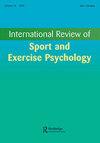扎根理论
IF 6.7
2区 心理学
Q1 HOSPITALITY, LEISURE, SPORT & TOURISM
International Review of Sport and Exercise Psychology
Pub Date : 2022-02-19
DOI:10.1080/1750984X.2022.2028305
引用次数: 3
摘要
本文的目的是(a)描述和评估过去11年来扎根理论方法论(GTM)在运动心理学中的应用,(b)为未来的最佳实践提供一些指导。在简要总结GTM的历史之后,我们提出了对2009年至2021年七份运动心理学期刊的快速回顾结果。总共保留了35篇关于使用GTM作为一种方法的文章。使用11项标准对保留的物品进行评估。总的来说,在过去的十年中,运动心理学中GTM研究的方法完整性似乎有所改善。35篇文章中有22篇符合全部标准,或者除了一条之外全部符合。有13篇文章不符合两个或两个以上的标准。就有待改进的领域而言,报告最少的程序是理论抽样(35项研究中的22项)、理论饱和(35项研究中的22项)和理论评估(35项研究中的22项)。此外,文章有时缺乏对理论敏感性的精密定位。我们讨论了研究人员可以增加方法上合理的GTM研究的概念和理论复杂性的方法。本文章由计算机程序翻译,如有差异,请以英文原文为准。
Grounded theory
ABSTRACT The purposes of this paper were to (a) describe and assess the use of grounded theory methodology (GTM) in sport psychology over the past 11 years and (b) provide some guidance for best practices moving forward. Following a brief summary of the history of GTM, we present the results of a rapid review of seven sport psychology journals from 2009 to 2021. A total of 35 articles that made claims regarding the use of GTM as a methodology were retained. The retained articles were assessed using 11 criteria. Overall, the methodological completeness of GTM studies in sport psychology appears to have improved over the past decade. Twenty-two of the 35 articles met all, or all but one, of the criteria. Thirteen articles did not meet two or more of the criteria. In terms of areas for improvement, the least widely reported procedures were theoretical sampling (reported in 22 of 35 studies), theoretical saturation (22 of 35 studies), and assessment of theory (22 of 35 studies). Furthermore, the sophisticated positioning of theoretical sensitivity was sometimes lacking in the articles. We discuss ways in which researchers can increase the conceptual and theoretical sophistication of methodologically sound GTM studies.
求助全文
通过发布文献求助,成功后即可免费获取论文全文。
去求助
来源期刊
CiteScore
17.30
自引率
9.10%
发文量
33
期刊介绍:
International Review of Sport and Exercise Psychology is the first scholarly, peer-reviewed journal that publishes critical reviews of research literature in sport and exercise psychology. Typically, these reviews evaluate relevant conceptual and methodological issues in the field and provide a critique of the strengths and weaknesses of empirical studies that address common themes or hypotheses. The reviews present summaries of, and conclusions about, the current state of knowledge concerning topics of interest, as well as assessments of relevant unresolved issues and future trends. Reviews of research literature on theories, topics and issues that are at the interface with mainstream psychology are especially welcome.

 求助内容:
求助内容: 应助结果提醒方式:
应助结果提醒方式:


